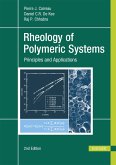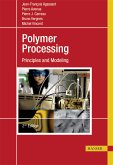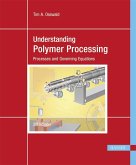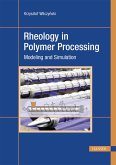Recent advances in polymer science have made it possible to relate quantitatively molecular structure to rheological behavior. At the same time, new methods of synthesis and characterization allow the preparation and structural verification of samples having a range of branched polymeric structures. This book unites this knowledge to enable production of polymers with prescribed processability and end-product properties. Methods of polymer synthesis and characterization are described, starting from fundamentals. The foundations of linear viscoelasticity are introduced, and then the linear behavior of entangled polymers is described in detail. This is followed by a discussion of the molecular modeling of linear behavior. Tube models for both linear and branched polymers are presented. The final two chapters deal with nonlinear rheological behavior and tube models to describe nonlinearity. In this second edition, each chapter has been significantly rewritten to account for recent advances in experimental methods and theoretical modeling. It includes new and updated material on developments in polymer synthesis and characterization, computational algorithms for linear and nonlinear rheology prediction, measurement of nonlinear viscoelasticity, entanglement detection algorithms in molecular dynamics, nonlinear constitutive equations, and instabilities. Contents: - Structure of Polymers - Polymerization Reactions and Processes - Linear Viscoelasticity - Fundamentals - Linear Viscoelasticity - Behavior of Molten Polymers - Tube Models for Linear Polymers - Fundamentals - Tube Models for Linear Polymers - Advanced Topics - Determination of Molecular Weight Distribution Using Rheology - Tube Models for Branched Polymers - Nonlinear Viscoelasticity - Tube Models for Nonlinear Viscoelasticity of Linear and Branched Polymers
Dieser Download kann aus rechtlichen Gründen nur mit Rechnungsadresse in A, B, BG, CY, CZ, D, DK, EW, E, FIN, F, GR, HR, H, IRL, I, LT, L, LR, M, NL, PL, P, R, S, SLO, SK ausgeliefert werden.
"I can thoroughly recommend this book to scientists needing a comprehensive and reliable introduction to the state of the art in polymer melt rheology, whether they are graduate students in universities (or more experienced researchers for that matter), or situated in an industrial development group. No reader will escape the correct impression that this field has grown through a healthy collaboration between academia and industry, and I expect that 'Structure and Rheology of Molten Polymers' will help to support that productive engagement for many years to some. It belongs right next to both Doi and Edwards Theory of Polymer Dynamics and Ferry's Viscoelastic Properties of Polymers, and that is where I have put it on my own shelf - and within arm's reach too." Tom McLeish, Rheological Acta, December 2018
"Methods of polymer synthesis and characterisation are described, starting from fundamentals. ... ln this second edition, each chapter has been significantly updated to include recent advances in experimental methods and theoretical modelling." TPE Magazine, June 2018
"Methods of polymer synthesis and characterisation are described, starting from fundamentals. ... ln this second edition, each chapter has been significantly updated to include recent advances in experimental methods and theoretical modelling." TPE Magazine, June 2018









